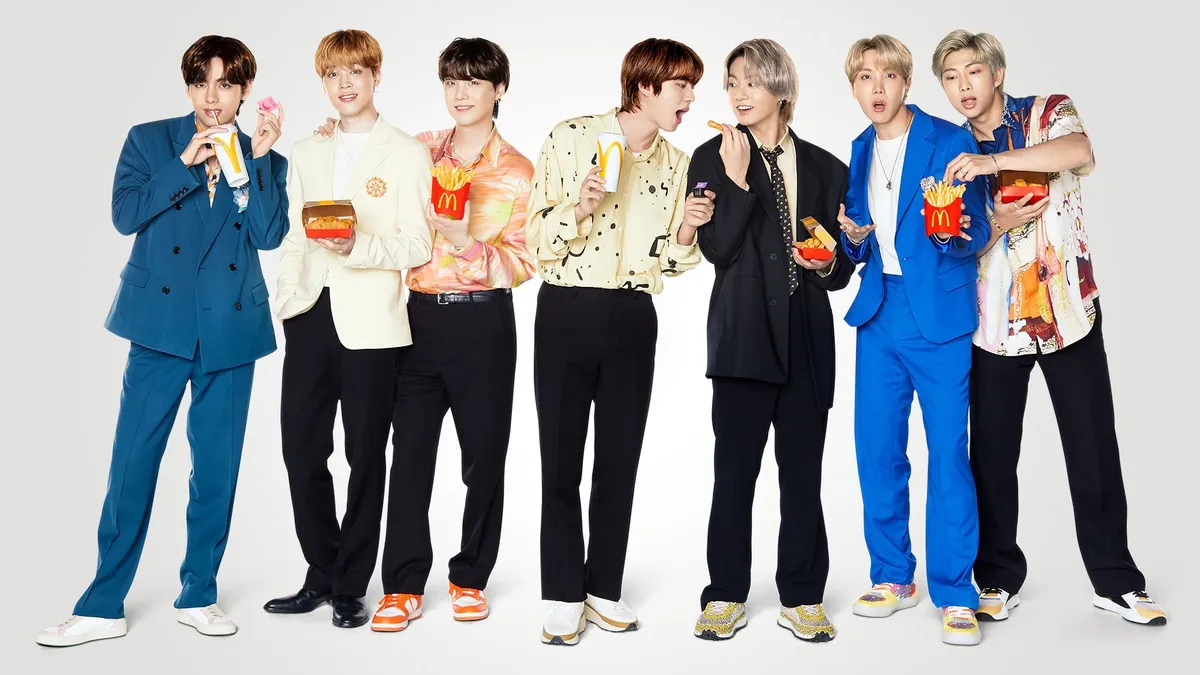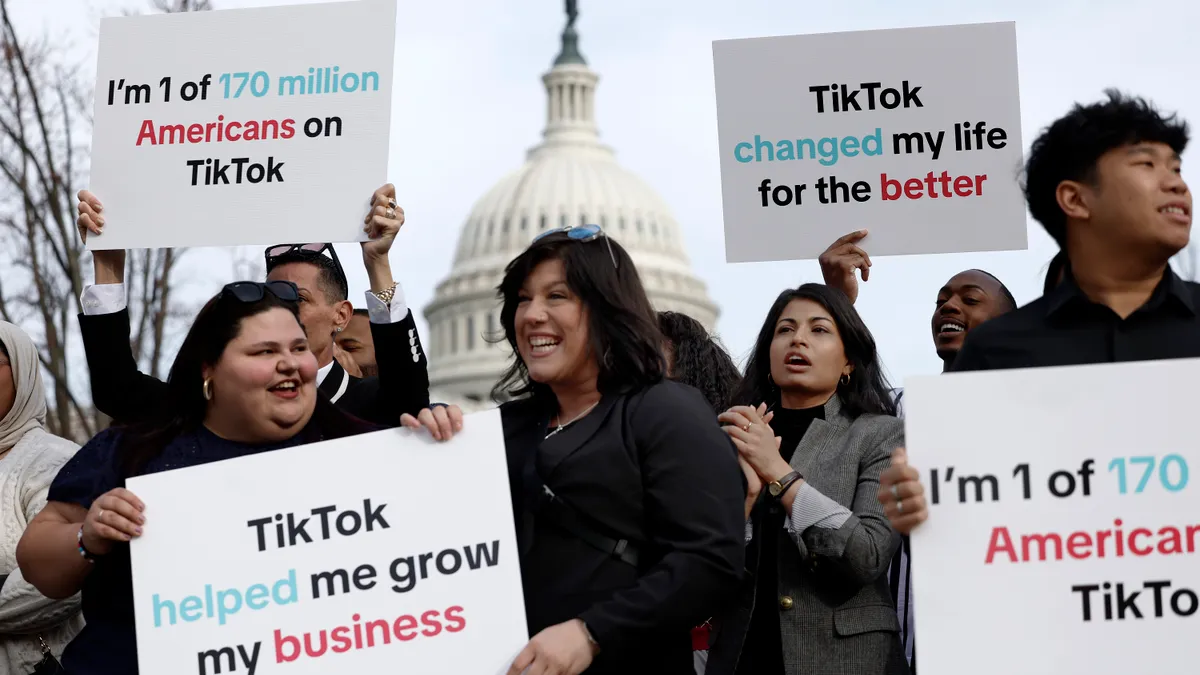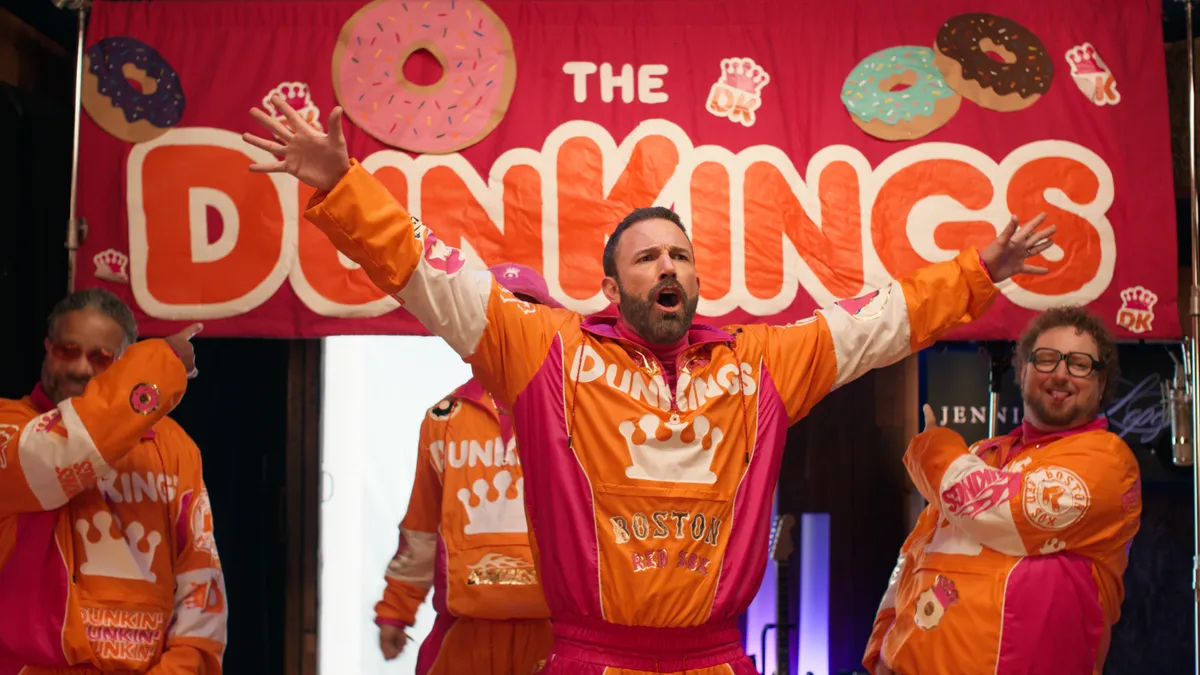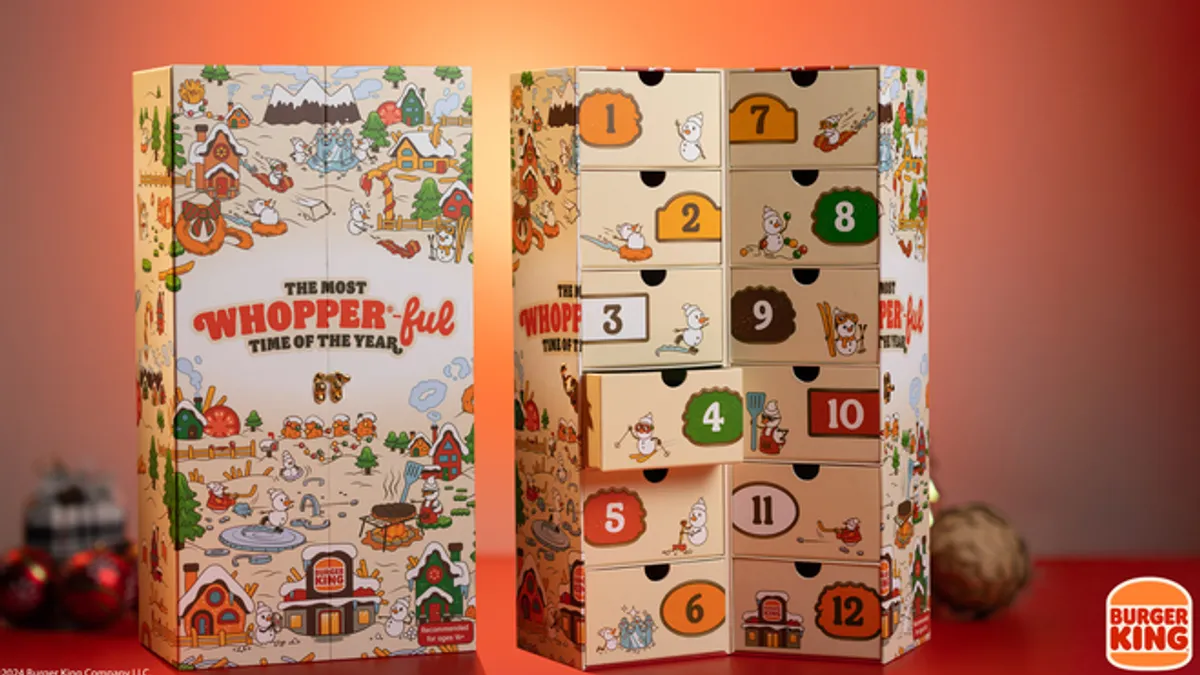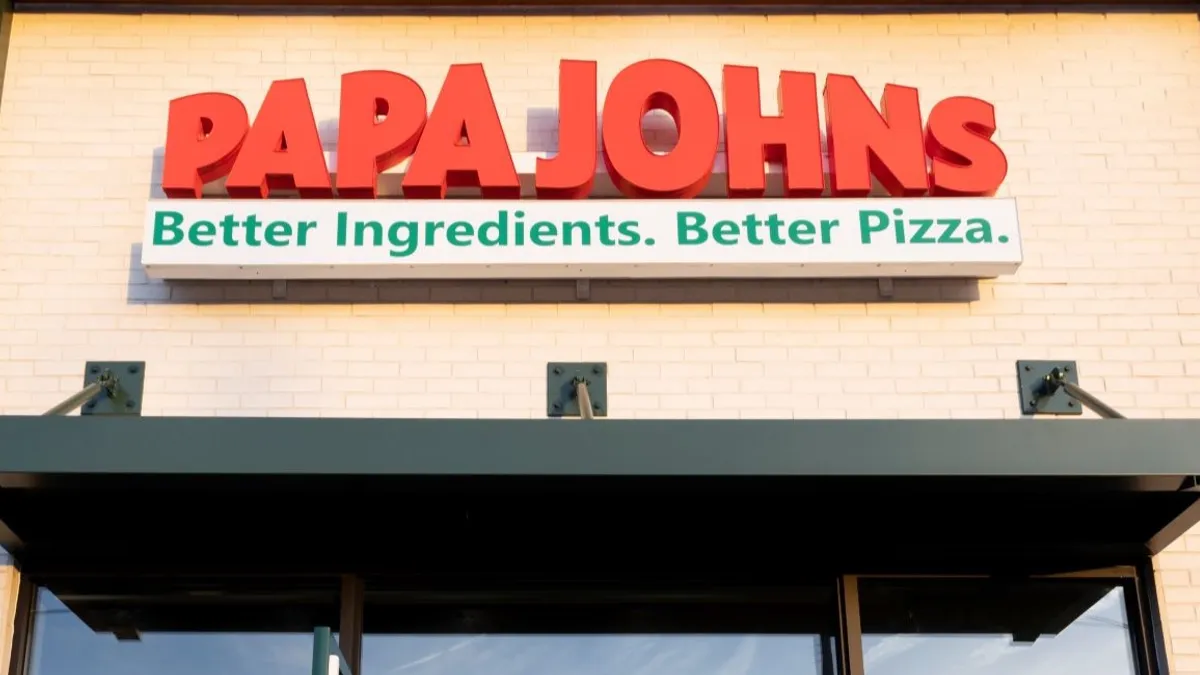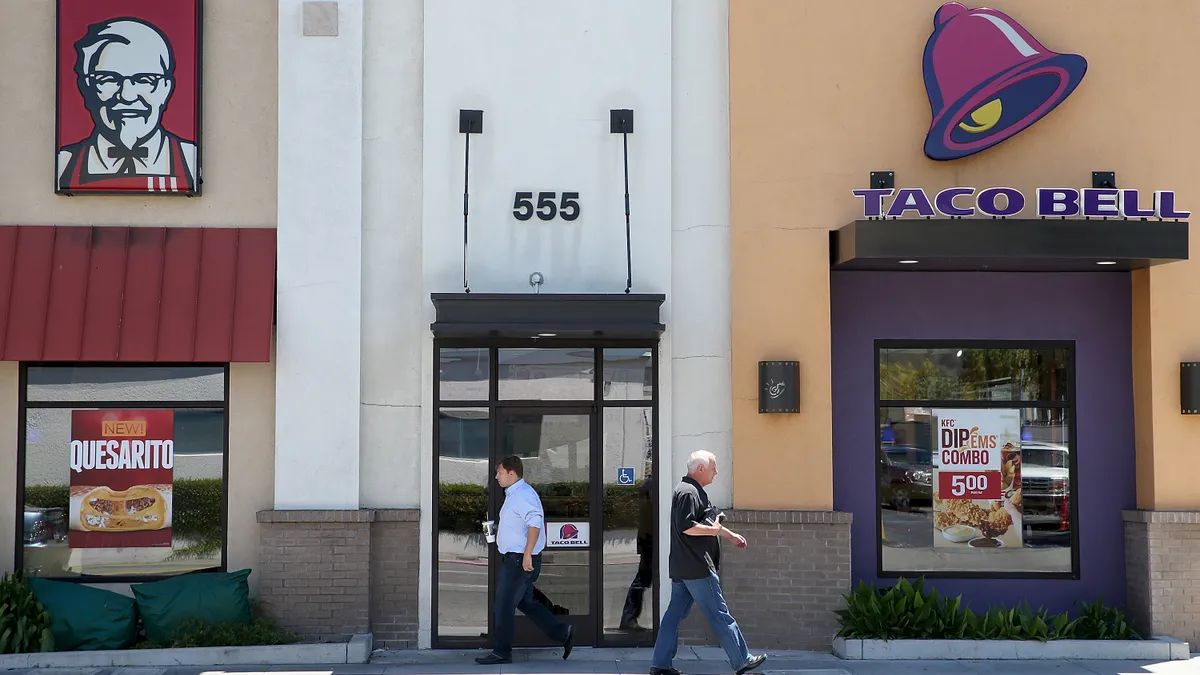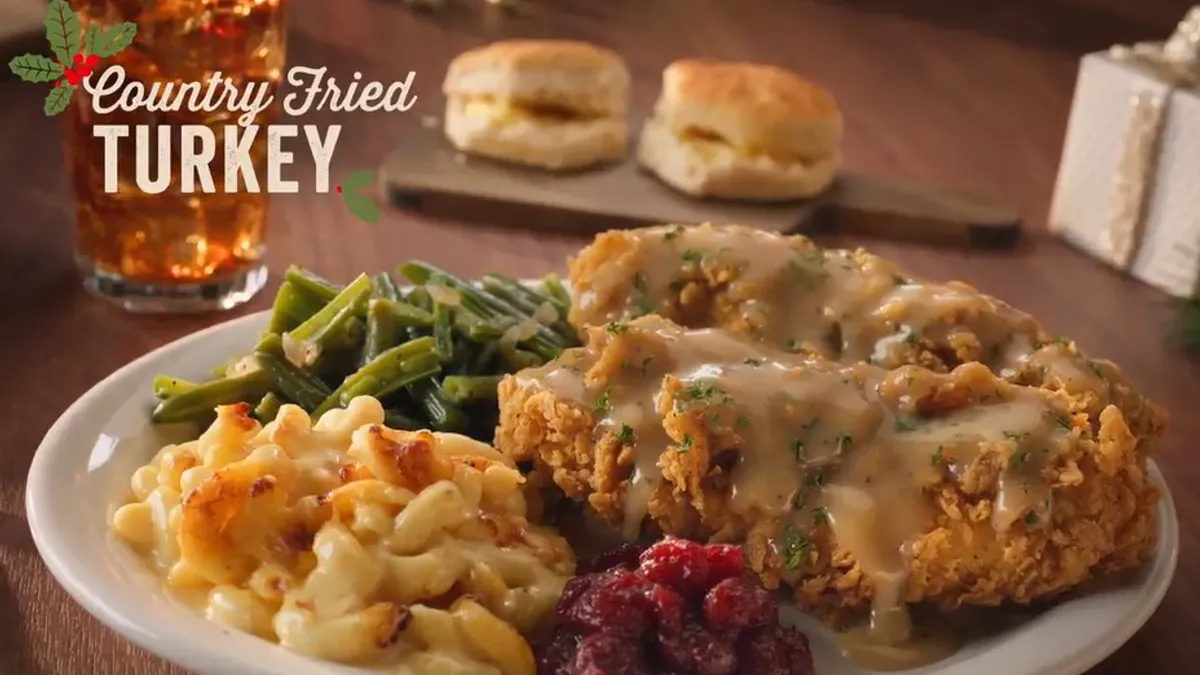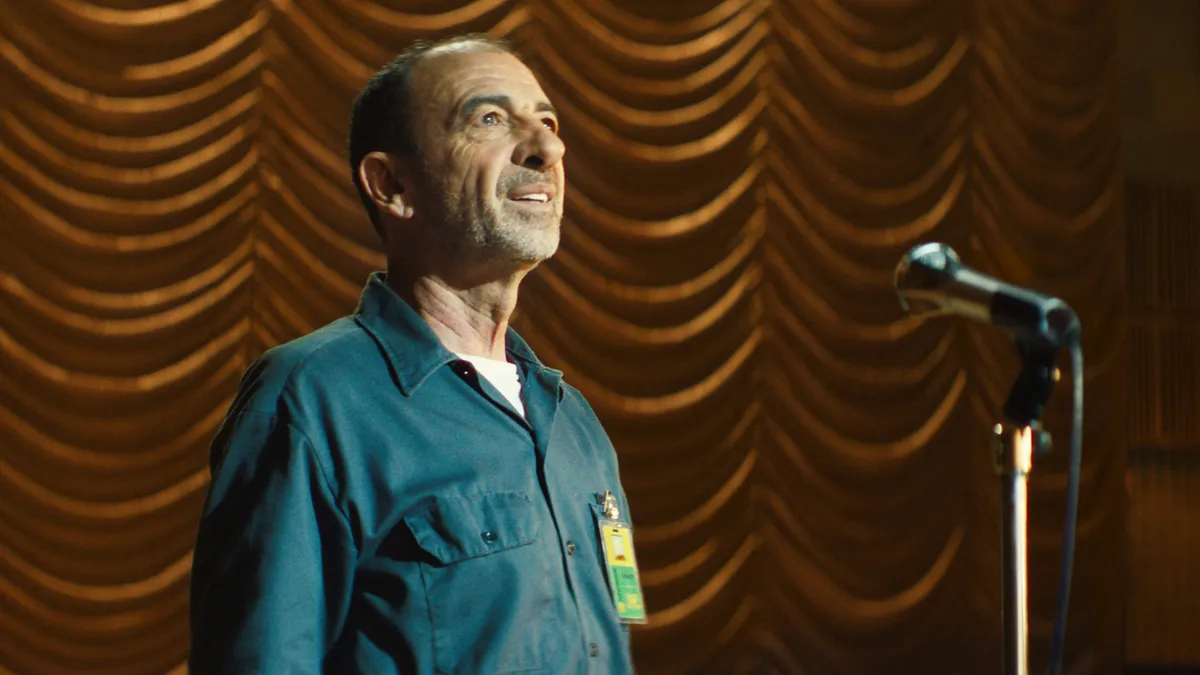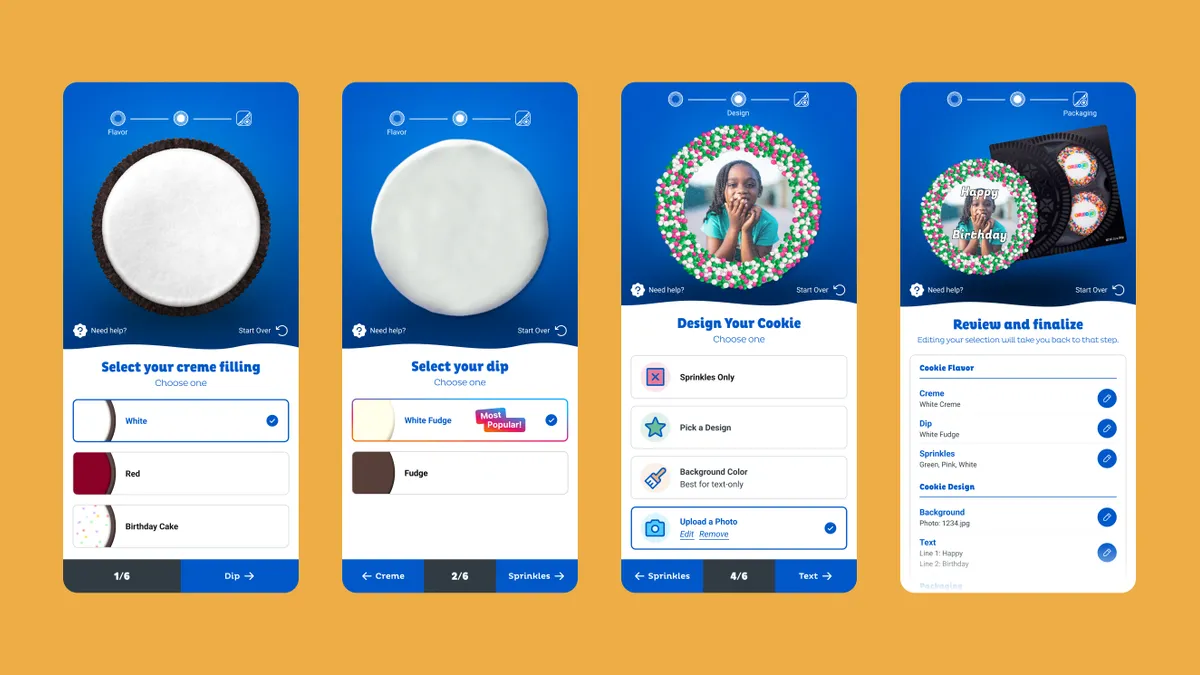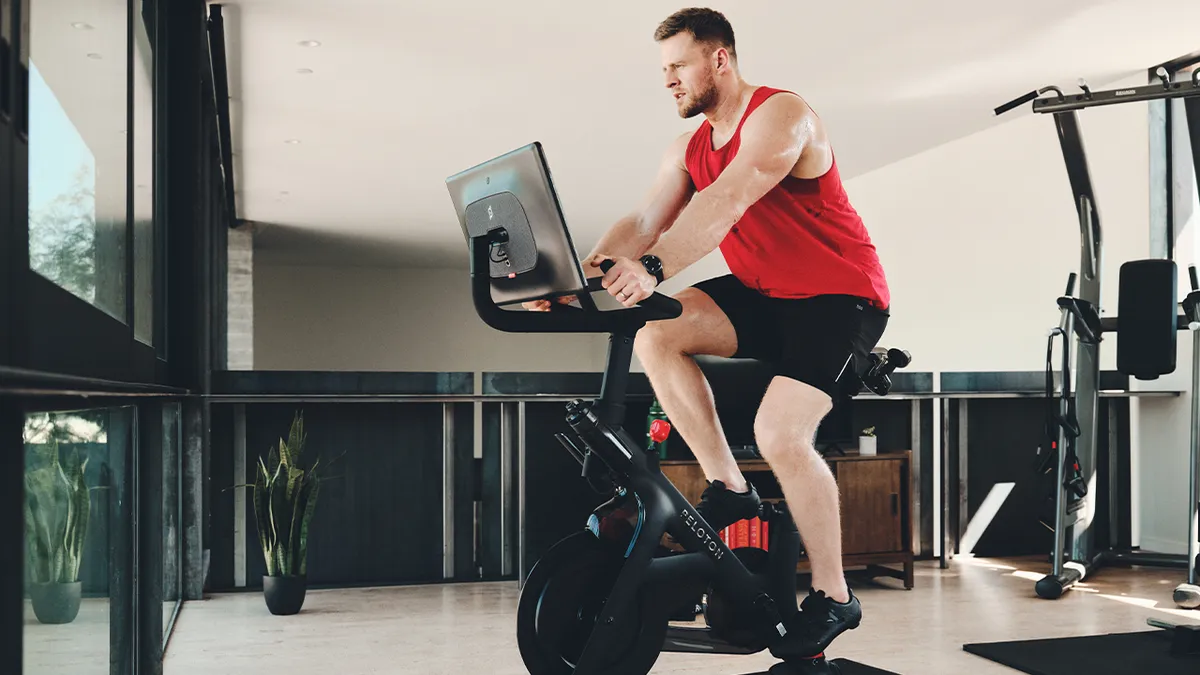McDonald's in the past year has boosted downloads for its app with each of its Famous Orders collaborations with a celebrity. App installs jumped 23% during the first week of its hyped BTS Meal promotion, alongside a 12% gain for daily average users, according to analytics firm Sensor Tower. The effect on future sales growth could be long-lasting as younger consumers use the app to order food and join the chain's recently launched loyalty program.
The success of its celebrity partnerships also helped to lift the profile of Morgan Flatley, McDonald's U.S. chief marketing and digital customer experience officer who will become global CMO on Nov. 1. As a member of the company's senior leadership, she will oversee marketing and branding efforts worldwide.
The burger chain first saw a lift in app downloads last year when it introduced the Travis Scott Meal as part of a marketing partnership with the hip-hop star. The menu offering was notable as the first one named for a celebrity in almost 30 years, following the McJordan Special named after NBA legend Michael Jordan in 1992.
With the introduction of the Travis Scott Meal in September 2020, McDonald's saw an 11% gain in U.S. app installs from the prior week, per Sensor Tower. The analytics firm also observed a 17% lift in daily active users (DAUs) for the app.
"McDonald's has some very interesting celebrity partnerships that [it is] using to clearly stoke the interest of millennials and Gen Z who are most intimately familiar with these celebrities," said Lauren Hockenson, a product marketing manager at Sensor Tower who studied the effects of McDonald's celebrity meal campaigns on app usage.
The fast food giant spent an estimated $6.8 million on digital and social advertising while the Travis Scott Meal was available from Sept. 4 to Oct. 8, 2020. The lift in app downloads was notable because McDonald's didn't mention the app in its ad creative that ran on YouTube and Snapchat, according to Sensor Tower.
From J Balvin to BTS
Before the promotion for the Travis Scott Meal wrapped up, McDonald's initiated a collaboration with J Balvin, the Colombian reggaeton singer. In addition to highlighting the J Balvin Meal, the campaign showcased the McDonald's app by offering a free Oreo McFlurry to anyone who ordered from their smartphone.
"McDonald's is not only doing celebrity partnerships, but [it is] also very interested in bringing their consumer base onto their mobile app," Hockenson said. "[It's] also very interested in integrating the app into the overall customer service stack."
McDonald's spent more than $9 million to promote the J Balvin Meal, with a heavy presence on YouTube that included Spanish-language spots. The chain also ran ads on Snapchat that focused on the free Oreo McFlurry offer. Despite spending 32% more on digital ads for the J Balvin campaign than it had on the Travis Scott promotion, McDonald's didn't see a proportionate increase in app installs. In the U.S., daily installs averaged about 46,000, or about 85% of the level for the Travis Scott campaign, Sensor Tower estimates.
The comparably lackluster results may have been related to widely shared reports that McFlurry machines are constantly broken, and a concurrent McDonald's campaign that promoted the J Balvin Meal through food-delivery apps such as Uber Eats, DoorDash and Postmates, per Sensor Tower.
"McDonald's is putting two halves of their whole objective together: engaging with Millennials and Gen Z with their celebrity campaigns, while rewiring the behavior of their customer base toward a mobile-focused engagement experience."

Lauren Hockenson
Product marketing manager, Sensor Tower
McDonald's this year returned to celebrity-driven campaigns with its collaboration with K-Pop supergroup BTS. Digital ad spending reached $10 million for the BTS Meal promotion, which included ads that urged fans to order through the chain's app. In addition to ads on YouTube, the campaign included desktop ads on websites popular with K-Pop fans, such as Soompi, AllKPop and Viki by Rakuten. Instead of promoting the BTS Meal on Snapchat, McDonald's pivoted toward Instagram to reach fans of the band.
App installs jumped 23% during the first week of the BTS campaign, alongside a 12% gain for daily average users, Sensor Tower's data show. That usage was 20% higher than during the first week of the Travis Scott Meal promotion.
"These campaigns had a pretty significant impact on daily active users, which is one of the golden metrics for mobile," Hockenson said. "They want people to be engaging with the app daily, and it's clear that these campaigns are having an impact on McDonald's business overall."
Same-store sales growth
McDonald's same-store sales rose 26% during the second quarter from a year earlier, when many restaurant dining rooms shuttered during the pandemic's onset. Still, the company saw 15% same-store growth from 2019 as the BTS Meal campaign and newer items like the Crispy Chicken Sandwich drove traffic.
Toward the end of Q2, McDonald's rolled out its first nationwide loyalty program. MyMcDonald's Rewards is only available in its app, giving customers a way to manage points they accumulate with every dollar spent. The loyalty program marks an extension of the chain's longer-term strategy to focus on "the three Ds: drive-thru, delivery and digital" — which became a key strength during the health crisis as many people avoided dining out.
McDonald's doesn't show any sign of slowing its celebrity-related promotions, as seen with this month's launch of the Saweetie Meal, named for the female rapper. As the restaurant chain drives more downloads for its app and enlists people into its loyalty program, it can reap longer-term gains.
"Being able to engage people online through their mobile phones really fits in with the lifestyle that people are experiencing today," Hockenson said. "McDonald's is putting two halves of their whole objective together: engaging with Millennials and Gen Z with their celebrity campaigns, while rewiring the behavior of their customer base toward a mobile-focused engagement experience."


